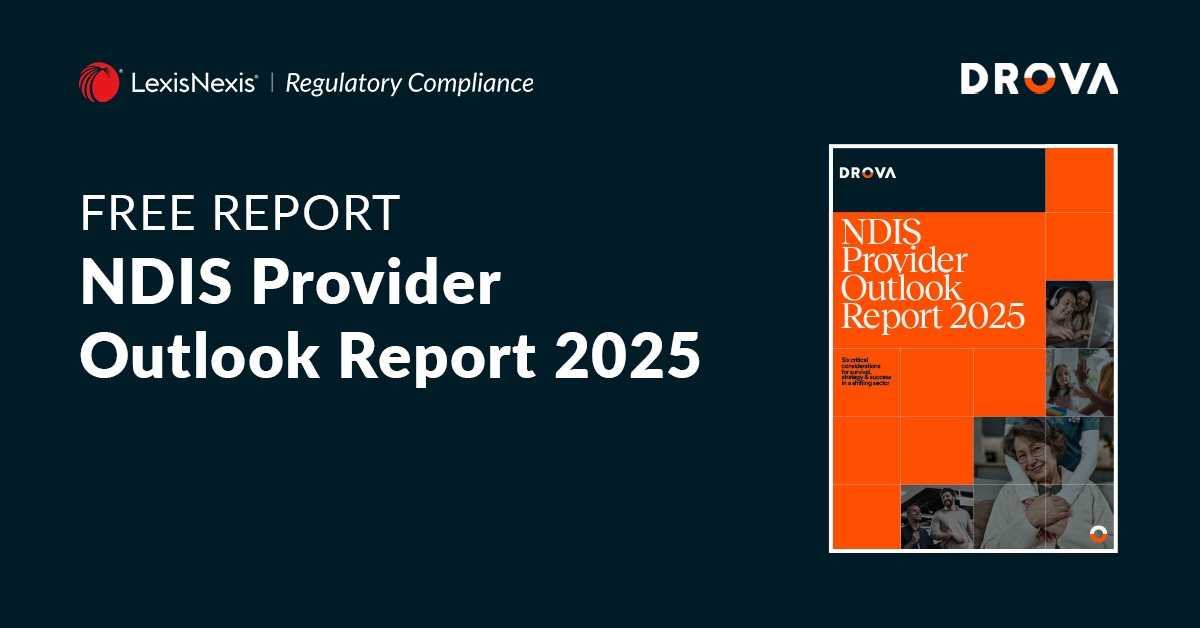Partially commenced on 21 February 2025, this Act implements comprehensive consequential amendments to numerous Commonwealth laws following the establishment of the Administrative Review Tribunal (ART) to replace the former Administrative Appeals Tribunal. The Act aligns review rights and procedures with the new ART framework, updates references to the tribunal across Commonwealth legislation, and introduces provisions relating to the guidance and appeals panel of the ART.
Partially commenced on 1 January 2025, this Amendment Regulation amends the Building (General) Regulation 2008 (ACT) to strengthen building certification services, implement reforms to residential building work, and increase the likelihood of identifying building defects during the certification process and protect the community from adverse outcomes associated with building defects.
Fully commenced on 7 January 2025, this Amendment Act amends the Customs Tariff Act 1995 (Cth) to reduce compliance burdens on Australian businesses, support Ukraine's international trade, and simplify Australia's tariff legislation.
Fully commenced on 5 February 2025, this Amendment Act amends the Electricity Industry Act 2004 (WA), the Electricity Act 1945 (WA) and the Electricity Industry Amendment (Distributed Energy Resources) Act 2024 (WA) to implement the alternative electricity services registration framework.
Commenced on 6 February 2025, this Amendment Act amends the Australian Energy Market Operator (Functions) Regulations 2015 (WA), the Electricity Industry (Wholesale Electricity Market) Regulations 2004 (WA), and the Electricity Transmission Regulations 1996 (WA) to update provisions relating to the wholesale electricity market, system voltage requirements, and civil monetary penalties.
Fully commenced on 11 January 2025, this Amendment Act amends the Environment Protection Act 1997 (ACT), the Environment Protection Regulation 2005 (ACT), and the Water Resources Act 2007 (ACT).
Commenced on 25 February 2025, this Instrument establishes a mandatory code process for digital labour platform operators to follow when deactivating employee-like workers.
Fully commenced on 26 February 2025, this Amendment Act amends the Fair Work Act 2009 (Cth) in relation to workplace relations, certain independent contractors, unfair contracts, the road transport industry, and registered organisations.
Commenced on 18 March 2025, this Amendment Regulation amends the Food Regulation 2015 (NSW) to modify exemptions relating to food safety supervisor requirements and to align the Food Standards Code with these changes.
Commenced on 21 February 2025, this Amendment Regulation amends multiple Queensland regulations relating to state forests, forest reserves, national parks, and nature refuges to facilitate the conversion of certain forest reserves to protected areas and updates various land descriptions and boundaries.
Partially commenced on 6 February 2025, this Amendment Act amends several gambling-related Acts to strengthen regulatory oversight and modernise gambling regulation in Western Australia, including to introduce new procedures for infringement notices under the Gaming and Wagering Commission Act.
Commenced on 6 February 2025, these Amendment Regulations introduce comprehensive changes to Western Australia's gambling regulatory framework by amending multiple regulations to update penalties and establish new compliance requirements.
Fully commenced on 1 March 2025, this Amendment Act amends various health-related Acts to modernise and streamline compliance and enforcement powers, supporting a graduated, proportionate and risk-based approach to regulation by the Secretary to the Department of Health to prevent or minimise harm to health or safety of Victorians.
Fully commenced on 9 January 2025, this Amendment Act amends various legislation, including the Residential Tenancies Act 1997 (ACT), the Charitable Collections Act 2003 (ACT) and the Land Titles Act 1925 (ACT) relating to housing and consumer affairs.
Partially commenced on 31 January 2025, this Amendment Act amends the Industrial Relations Act 1979 (WA) and the Minimum Conditions of Employment Act 1993 (WA) to modernise and improve Western Australia's industrial relations system, including to introduce an objective test for determining whether a worker is an employee or a casual employee, based on the real substance and practical reality of the working relationship rather than strict contractual terms.
Partially commenced on 27 February 2025, this Amendment Act makes amendments to various Acts relating to justice and community safety in the Australian Capital Territory, including to introduce new provisions regarding representative conduct under the Fair Trading (Australian Consumer Law) Act 1992 (ACT).
Commenced on 20 February 2025, this Amendment Regulation amends the Manufactured Homes (Residential Parks) Regulation 2017 (Qld) to prescribe information required to support improvements in transparency and accountability in the residential parks sector, as introduced by recent amendments to the Manufactured Homes (Residential Parks) Act 2003 (Qld).
Fully commenced on 1 February 2025, the Guidelines revoke the Motor Accident Injuries (Premiums) Guidelines 2023 (No 1) (ACT) and provide a mechanism for the prudential regulation of Motor Accident Injuries insurance premiums.
Commenced on 19 February 2025, these Amendment Rules amend the National Redress Scheme for Institutional Child Sexual Abuse Rules 2018 (Cth) to introduce new provisions for handling reassessment decisions, particularly in cases where applicants are deceased, and establish procedures for surplus payment distribution.
Commenced on 15 February 2025, this Amendment Act amends the Navigation Act 2012 (Cth) to implement new safety requirements for vessels carrying industrial personnel to offshore facilities, as required by recent changes to the International Convention for the Safety of Life at Sea 1974.
Commenced on 15 February 2025, this Amendment Act enhances the efficiency and operation of various oversight mechanisms and strengthen and modernise the oversight powers of the Ombudsman and other integrity bodies.
Commenced on 12 February 2025, this Determination has been made under the Privacy Act 1988 (Cth) to replace the Privacy (International Money Transfers) Generalising Determination 2020 (Cth) and permit authorised deposit-taking institutions to disclose personal information of beneficiaries to overseas financial institutions when processing international money transfers.
Commenced on 6 March 2025, this Code of Practice has been approved under the Professional Engineers Act 2023 (ACT) to set out additional professional conduct standards for fire safety engineers in the Australian Capital Territory.
Commenced on 4 February 2025, this Determination revokes and replaces the Radiocommunications (Receiver Licence Tax) Determination 2015 (Cth) to prescribe how to calculate receiver licence taxes and to update tax rates based on population growth.
Commenced on 4 February 2025, this Determination has been made under the Radiocommunications (Transmitter Licence Tax) Act 1983 (Cth) to prescribe how to determine the amount of tax imposed on radiocommunications transmitter licences, replacing the Radiocommunications (Transmitter Licence Tax) Determination 2015 (Cth).
Fully commenced on 9 January 2025, the Amendment Regulation amends the Residential Tenancies Regulation 1998 (ACT) to introduce new requirements for residential tenancy agreements in the Australian Capital Territory.
Partially commenced on 1 March 2025, this Amendment Act amends the Road Safety Act 1986 (Vic) and other transport-related legislation to modernise various aspects of road safety regulation.
Fully commenced on 13 February 2025, this Amendment Act amends several Acts, including the Mining Act 1971 (SA), the Payroll Tax Act 2009 (SA), and the Stamp Duties Act 1923 (SA) to implement various state budget measures and revenue reforms.
Fully commenced on 3 February 2025, this Amendment Act enhances regulation of strata managing agents particularly regarding disclosure requirements, commissions, and insurance arrangements.
Partially commenced on 10 January 2025, this Amendment Act amends various laws relating to superannuation, taxation, corporations, financial services and multilateral development banks to deliver better financial outcomes and reduce red tape across several areas of financial regulation.
Fully commenced on 17 March 2025, this Amendment Act amends several instruments to implement the recommendations of the ‘Financial Market Infrastructure Regulatory Reforms: Advice to Government from the Council of Financial Regulators, July 2020’, which contain 16 recommendations for regulatory reform to strengthen Australia’s financial market infrastructure.
Commenced on 30 January 2025, this Standard aamends several Australian Design Rules to exempt purpose-built heavy mobile cranes from certain safety system requirements and align trailer brake system requirements with international standards.
Commenced on 7 March 2025, this Amendment Regulation has been made to amend the Water Management (General) Regulation 2018 (NSW) to enhance water metering requirements, improve record-keeping obligations, and update provisions related to floodplain harvesting metering.
Commenced on 8 March 2025, this Code of Practice has been made under the Work Health and Safety Act 2011 (Cth) to provide practical guidance to persons conducting a business or undertaking on managing health and safety risks arising from sexual and gender-based harassment at work.
Fully commenced on 1 March 2025, this Amendment Regulation amends the Work Health and Safety Regulation 2011 (Qld) to introduce specific requirements for managing the risk of sexual harassment and sex or gender-based harassment in the workplace.
Fully commenced on 1 March 2025, this Amendment Regulation amends the Work Health and Safety Regulation 2017 (NSW) to require that a demolition licence holder must not allow a worker to carry out licensed demolition work for the licence holder unless the licence holder is satisfied the worker has completed a course in safe demolition practice approved by the regulator.
Commenced on 1 March 2025, this Amendment Standard has been made by the Reserve Bank of New Zealand (RBNZ) to improve certain areas that impact the determination of solvency margins for insurers licensed under the Insurance (Prudential Supervision) Act 2010 (NZ).
Commenced on 25 February 2025, this Amendment Act amends the Overseas Investment Act 2005 (NZ) to reduce restrictions on overseas investment in 'build-to-rent' housing and create a pathway for overseas investors to obtain consent for large-scale rental property developments in New Zealand.
Partially commenced on 30 January 2025, this Amendment Act amends the Residential Tenancies Act 1986 (NZ) to enhance tenant protections, modernise tenancy processes, and introduce new provisions for pet ownership in rental properties.
Commenced on 21 February 2025, these Amendment Regulations amend the Russia Sanctions Regulations 2022 (NZ) to extend the sanctions regime's duration and expand the list of sanctioned entities and individuals in response to Russia's military actions in Ukraine and related assistance from other countries.
Commenced on 16 January 2025, the Amendment Regulations amends the Taxation (Use of Money Interest Rates) Regulations 1998 (NZ) to adjust the interest rates applicable to unpaid and overpaid tax amounts.
The Australian ESG module is designed to help organisations develop an Environmental Social and Governance (ESG) framework, covering mandatory and voluntary reporting requirements such as Sustainability Reporting (CRFD), the National Greenhouse Gas and Energy Reporting Scheme, and voluntary sustainability reporting and corporate governance principles.
The Insurance Contracts and Operations module contains the requirements for a general insurer and a life company where they provide insurance services to customers in Australia, together with guidance on how to manage their insurance business, as well as meet certain prudential obligations. Most of the requirements are shared by general insurers and life companies.
The module focuses on the obligations owed by an insurer under the Insurance Contracts Act 1984 (Cth) and related regulations.
The Payment Times Reporting module is designed to assist entities to navigate their legal responsibilities under the Payment Times Reporting Scheme, specifically in relation to, who must report (reporting entities, reporting nominees, volunteering entities, subsidiary entities and exempt entities), what information must be reported to the Payment Times Reporting Regulator and the record keeping obligations that apply to reporting entities.
New content was introduced on anti-competitive conduct in energy markets and carriage models in wholesale gas markets.
New content was introduced to cover the latest version of the Banking Code of Practice which takes effect on 28 February 2025.
New content was added to cover CPS 190 Recovery and Exit Planning and CPS 900 Resolution Planning.
New content was added to capture the requirements for Victorian disability providers providing residential services, and the requirements set out by the Disability Services and Inclusion Code of Conduct.
New content was added covering declarations of national significance and responsible entity reporting requirements in accordance with the Security of Critical Infrastructure and Other Legislation Amendment (Enhanced Response and Prevention) Act 2024 (Cth).
New content was added covering low cost credit contracts under the Treasury Laws Amendment (Responsible Buy Now Pay Later and Other Measures) Act 2024 (Cth).
New content was added to provide coverage of members’ withdrawal rights as specified in ss 601KA–601KE of the Corporations Act 2001 (Cth).
New content was added covering the minimum care standards that apply to clients facing or living with amputation, and best practices for rehabilitation services to identify and address service delivery gaps for better patient outcomes.
New content was added covering Prudential Standard SPS 515 Strategic Planning and Member Outcomes and Prudential Practice Guide SPG 515 Strategic Planning and Member Outcomes, as in force from 1 July 2025.
New content was added on voluntary reporting requirements for significant cybersecurity incidents.
New content was added to outline additional general, system and process requirements under the Western Australian Procurement Rules.
New content was added covering the originating legislation for water corporations in Western Australia.
- Australia: compliance@lexisnexis.com.au
- New Zealand: compliance@lexisnexis.co.nz

Download your free Australia ESG checklist!
Does your organisation understand and comply with mandatory sustainability and greenhouse reporting obligations?
Environmental, Social and Governance (ESG) compliance is a constantly evolving. Regulators, investors and society at large expect businesses to address and report on ESG matters and commit to sustainable practices. To help with your ESG strategy and reporting requirements, download our free checklist on Australia ESG! DOWNLOAD TODAY!

Download your free NZ Cybersecurity Compliance Checklist!
We’ve developed this checklist with content taken directly from the New Zealand Cybersecurity compliance register from LexisNexis Regulatory Compliance. It provides guidance across 21 key topics, designed to navigate legislative complexity, giving you a clear, actionable roadmap to identify legal obligations and protect your business.


Patrice Fitzgerald
Principal Lawer and Director, SafeSpace
LexisNexis Regulatory Compliance Legal Expert: Child Safety
Patrice is dedicated to protecting children and vulnerable individuals, leveraging her extensive legal expertise to ensure their safety. Admitted as a lawyer in the Supreme Court of Victoria in 2006, Patrice has over 17 years of experience in safeguarding and child protection. She has collaborated with a diverse range of organisations, from small volunteer groups to large national corporations, helping them meet their moral and legal obligations.
Patrice's work spans various sectors, including schools, early education, family services, public housing, children's services, councils, and disability service providers. She excels in identifying compliance gaps and implementing effective changes. Her proficiency in handling sensitive misconduct complaints and conducting thorough investigations, both historical and current, is well-recognised.



- How proactive compliance protects funding & builds resilience
- The biggest regulatory risks on the horizon for NDIS providers
- Why a strong governance framework is essential for financial security











